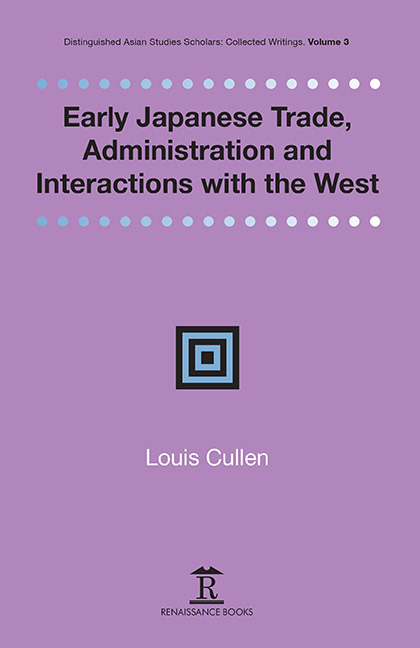3 - Review of James W. White’s Ikki: Social Conflict and Political Protest in Early Modern Japan
Published online by Cambridge University Press: 30 April 2022
Summary
IN ANY DISCUSSION about interpreting Japanese history anew, the question of ikki (riots) is often a stumbling block. In Japan, as in other countries, a large literature on unrest in various forms, often highly specialized, tends to lie outside the mainstream of broader historical investigation. This compounds a problem concerning coverage of Japanese history, whether by Japanese or non- Japanese, of giving only a self-contained history written in terms of an isolated debate, and further distorted when non-Japanese concepts are applied outside their original contexts.
The most striking problem connected with ikki is that they are usually related to a negative appraisal of Tokugawa history (1603–1868). Immiseration caused unrest, and if there is any doubt of the misery, the records of the ikki clearly demonstrate severe social unrest. Ikki are represented as rising exponentially to a peak in the 1860s; however, this neat profile and dénouement smack somewhat of Ernest Labrousse's increasingly discredited version of French history before the revolution.
Professor White's book, however, while working within the framework of ikki counts and typology, turns the debate on its head. Ikki, he argues, did not arise from misery but resulted from increasing affluence. Though growing in number, ikki, defined broadly as contention (ranging over fifty-two categories), represented not desperation but a rational calculation. They played a dynamic role in preventing the state, whether han or bakufu administrations, from increasing revenue. Halting fiscal demands and creating surpluses for rural occupiers, economic development itself was sustained. In turn a rational calculus by countrymen helps to explain both the uncommon height of unrest in the decade of greatest political upheaval, the 1860s, and the ability of the new Meiji government (from 1868) to end it. A stronger Japan, unified and effective in contrast to the old bakuhan taisei, could count on the rationality of its citizens as well as on its enhanced military and administrative singlemindness. This interpretation eliminates the problem of accounting for the contrast between the apparently better order of the Meiji era and that of the Tokugawa period.
Professor White's belief is consistent with new thinking on bakufu economic history, which, in contrast to describing economic decay and social strife, argues that the economy actually grew.
- Type
- Chapter
- Information
- Publisher: Amsterdam University PressPrint publication year: 2020



